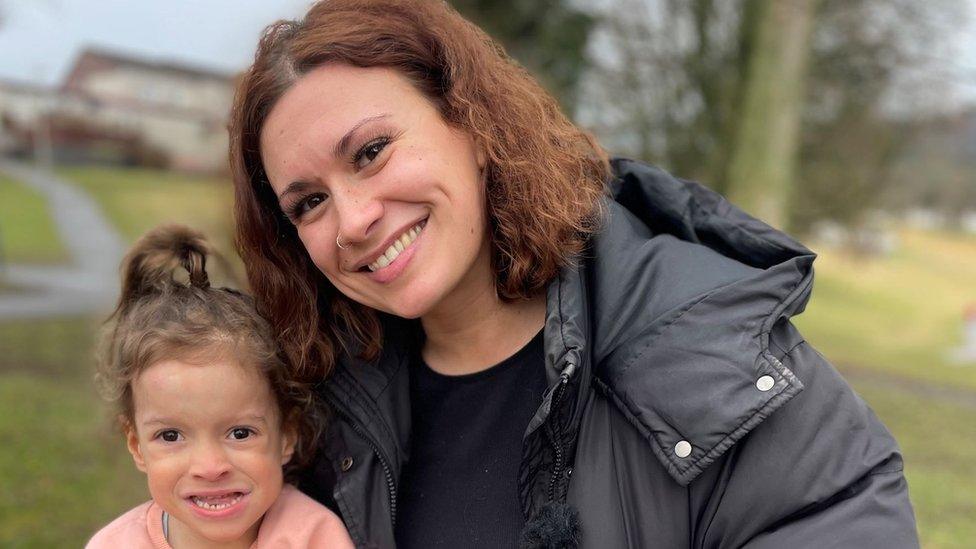Future spending to target the poorest, says Humza Yousaf
- Published
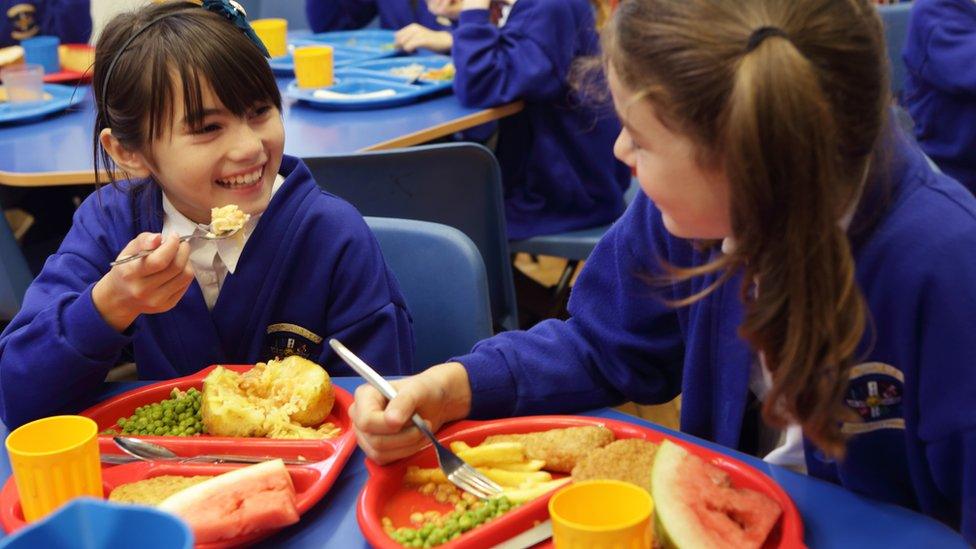
Humza Yousaf has said future Scottish government spending plans will be targeted at those most in need.
The first minister revealed he has asked his cabinet to review all future commitments to ensure they are effectively aimed at reducing poverty.
Mr Yousaf said previous universal policy commitments, such as rolling out free school meals to all primary age children, would stand.
However he warned "tough choices" would be made about existing budgets.
The first minister said he wanted to explore "whether targeting help is the way forward when money is so tight".
The comments came after a summit about tackling poverty in Edinburgh involving politicians and charities.
Polling commissioned by the Joseph Rowntree Foundation suggests the majority of Scots are cutting back on essentials, with the poorest the most affected.
The Scottish government used the poverty summit to announce £4.5m in funding to improve after-school clubs in disadvantaged areas of the country.
Mr Yousaf told BBC Scotland that universal policies, such as abolishing prescription charges, were "not necessarily in conflict" with spending being more targeted in the future.
He said: "What I am asking everyone in the cabinet to do, and I will lead as first minister, is look at every single future commitment we have made and ensure we are spending the money in relation to those who need it absolutely the most.
"We are not talking about rolling back on anything that is absolutely in place, all I am doing is asking the question - as people would expect me to do - for any future policy, are we making sure that every pound and penny we spend is helping us to reduce poverty, and child poverty in particular.
"The manifesto stands as is but I hope people understand we have got to make tough choices."
Mr Yousaf said he wanted the debate about public spending to be around "tax, targeting and tough choices".
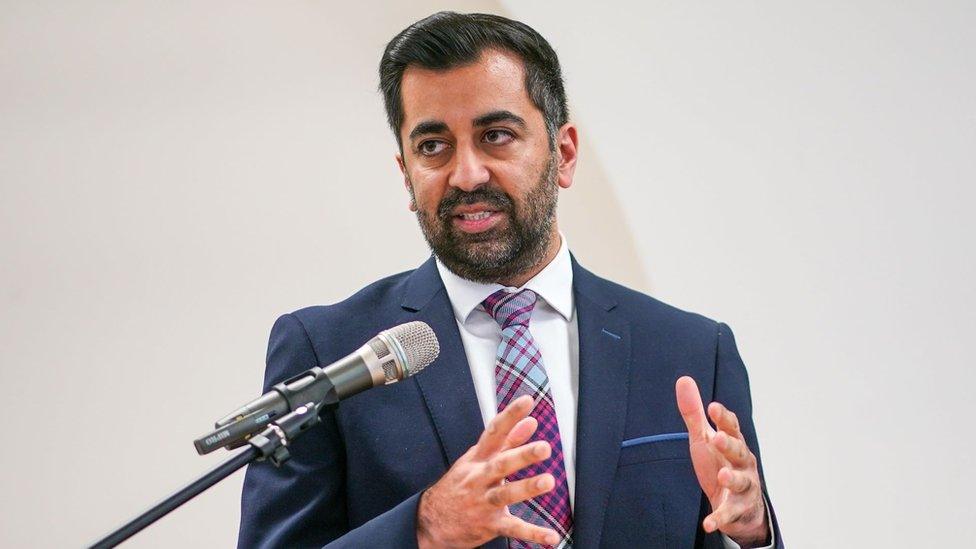
First Minister Humza Yousaf speaking during an anti-poverty summit in Edinburgh
Universal free school lunches have been extended to children in P4 and P5 since the SNP retained power in the May 2021 election, saving families an average of £400 a year.
However, plans to include P6 and P7 children have been delayed until 2024.
Call for meals commitment
In an interview with the Daily Record, external newspaper, Mr Yousaf appeared to question the universal provision of free schools meals.
He said: "I've got a 14-year-old now. Should people be paying for her free school meals when I earn a First Minister's salary?
"I don't think that's the right way to use that money. A better way is to target those that need it absolutely the most."
The Educational Institute of Scotland (EIS), Scotland's largest teaching union, has hit out at any suggestion the policy of universal free school meals could be abandoned.
General secretary Andrea Bradley said: "The first minister seems to suggest that means-testing provision of free school meals is a preferable option, primarily for financial reasons.
"Reneging on a commitment to free school meals would be a massive and profoundly damaging mistake which would betray young people living in poverty across Scotland, and would be a particularly hard blow to families with school-aged children as they continue the hard struggle with the cost-of-living crisis."


This is a big moment for Humza Yousaf. He is putting his own stamp on the Scottish government.
First, by making tackling poverty a priority that he wants to be judged on.
Second, by suggesting tax changes, more targeted spending and tough choices (spending cuts) may be required elsewhere to deliver on that priority.
Tax changes might mean creating a new income tax band to take more from higher earners as Mr Yousaf suggested in the SNP leadership contest.
Targeting might mean limiting any expansion of free school meals into secondary schools to those pupils considered most in need.
Tough choices might mean squeezing spending across Scottish government departments to free up more cash to increase benefits like the Scottish Child Payment.
No final decisions have been taken but these are examples of options that may be considered as the first minister starts a new conversation about how public money is raised and spent.
- Published17 August 2022
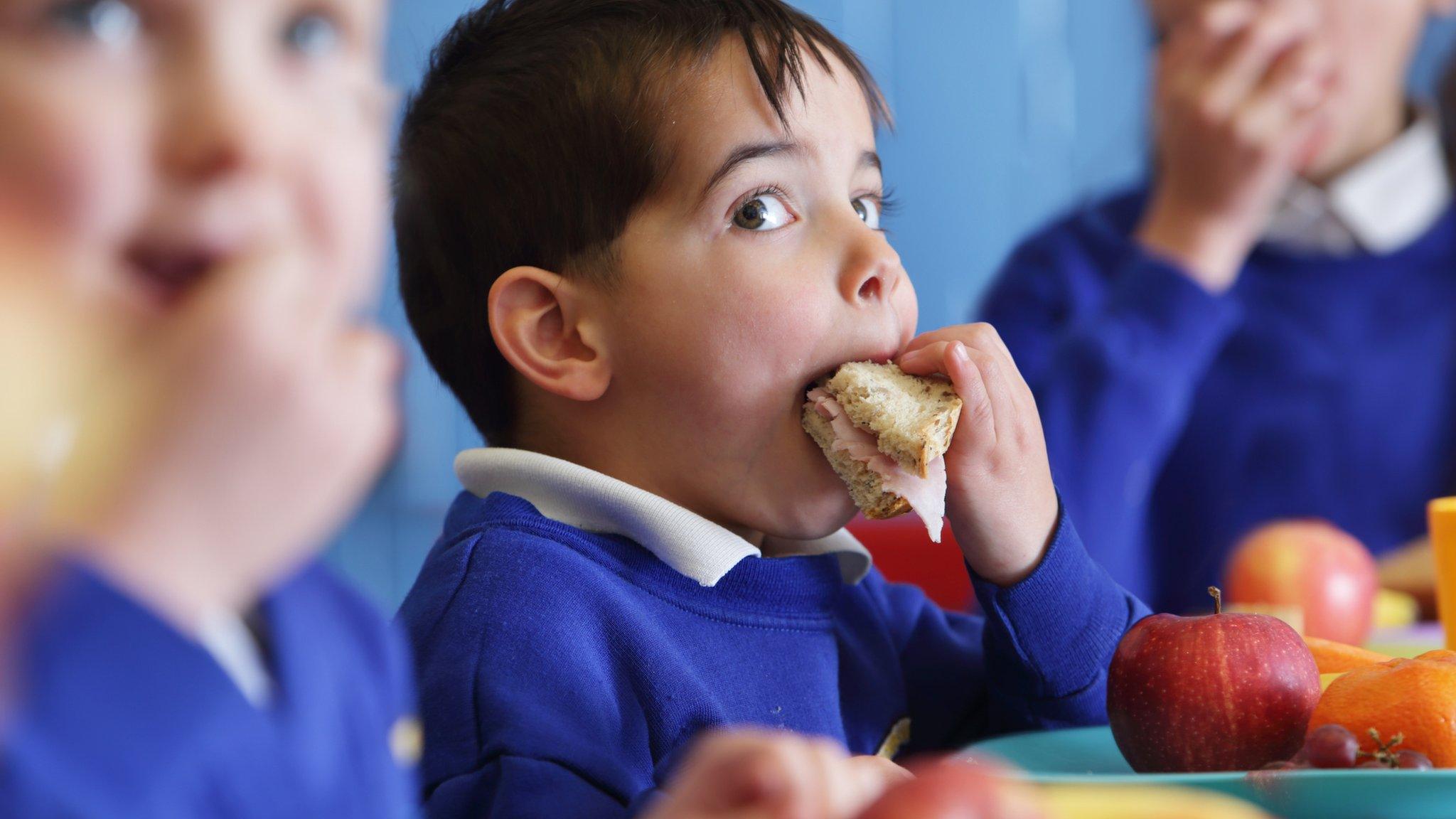
- Published27 December 2022
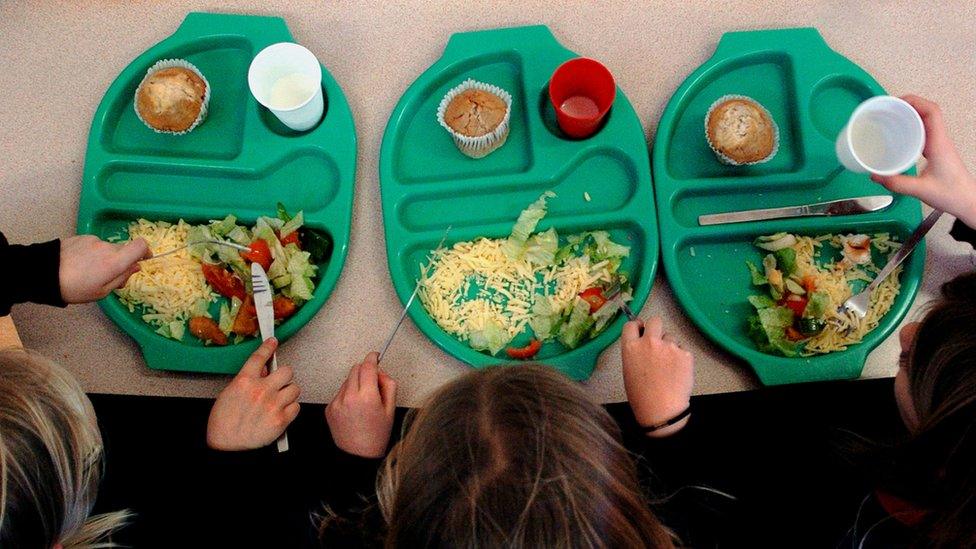
- Published18 April 2023
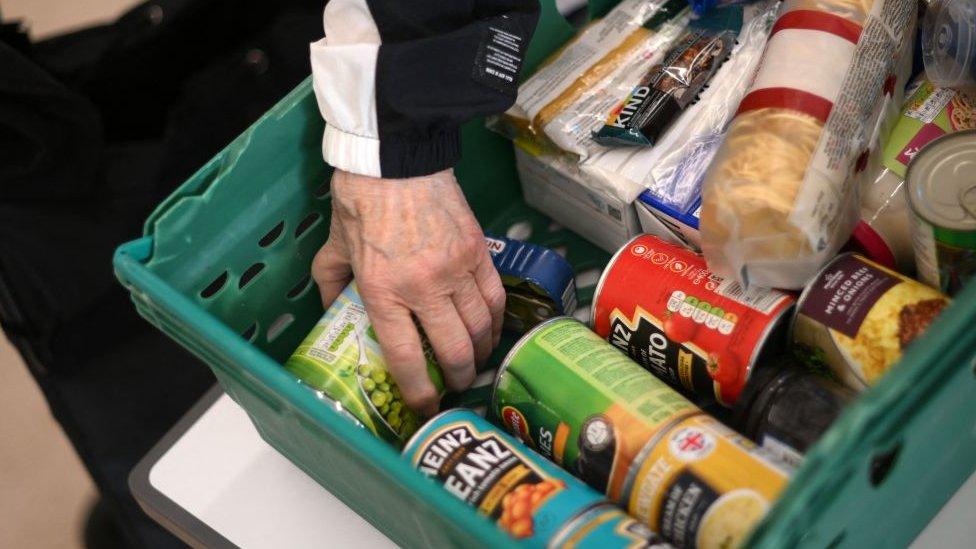
- Published23 March 2023
